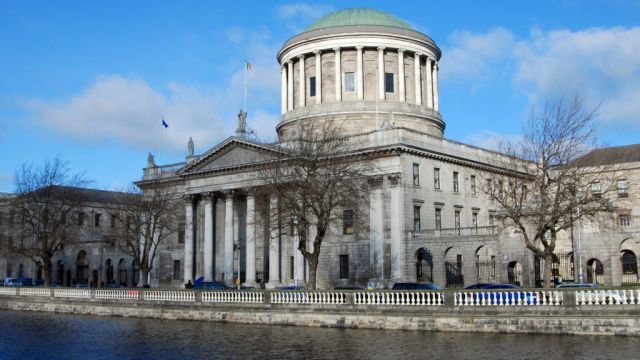The High Court has cleared the way for a man to challenge a lower court’s refusal to grant him anonymity in criminal proceedings he says arose out of an incident involving his children.
In a ruling on Tuesday, Mr Justice Garrett Simons was satisfied the man has an “arguable” case that some form of reporting restrictions should be imposed in respect of the criminal proceedings.
However, the legal question is “not clear-cut”, the judge said, adding there is a low threshold for granting leave in a judicial review challenge.
This case is “borderline” and there are “respectable arguments” for an anonymisation order not being made, Mr Justice Simons said.
The man said the alleged offences came after he left one of his sons, who was asleep at the time, unattended in a parked car for a brief period while he bought something at a shop. When he returned to his car, his son was well, content and fast asleep, the man claims.
It appears, the judge said, that the man was then approached by two gardaí and was arrested. He has since been charged with failing to provide his name and address, failing to comply with a garda’s direction and using or engaging in threatening, abusive or insulting words or behaviour. The man denies these charges.
The criminal proceedings were scheduled at the District Court last January where the judge refused the man’s application seeking to have the proceedings anonymised. The man is now seeking judicial review of this decision.
Welfare of a minor
Granting permission for the man to pursue his claim in the High Court, Mr Justice Simons said it is “arguable that the criminal proceedings relate, at least indirectly, to the care and welfare of minor children”.
The man exhibited correspondence indicating gardaí made a referral to Tusla, the judge noted, adding the letter confirms that Tusla considers there is “no ongoing role for social work” and that the referral is now closed.
The role of the minor children in the criminal proceedings is “peripheral”, in contrast to a case where an accused themselves is a minor, granting them anonymity under the Children Act of 2001, the judge added.
The leave application was made while only the plaintiff was on notice and represented in court. Mr Justice Simons refused a temporary order that would have forced the District Court judge to issue an anonymisation order of the criminal proceedings, which were due to be heard later this month.

“The practical effect of the interim relief, if granted, would be that the applicant would have achieved the principal relief sought by him in the judicial review proceedings, without the other side having had an opportunity to be heard by the High Court,” the judge explained.
Instead, Mr Justice Simons paused the criminal prosecution until the High Court has determined the judicial review proceedings or changed the order. The respondent, the Director of Public Prosecutions, can apply to court to set aside or vary this order, he said.
Mr Justice Simons also imposed reporting restrictions in the High Court, noting the proceedings would be rendered “nugatory” if the parties were identified, as the very thing the man seeks to protect would have been disclosed.
He adjourned the case to a date later this month for further directions.







